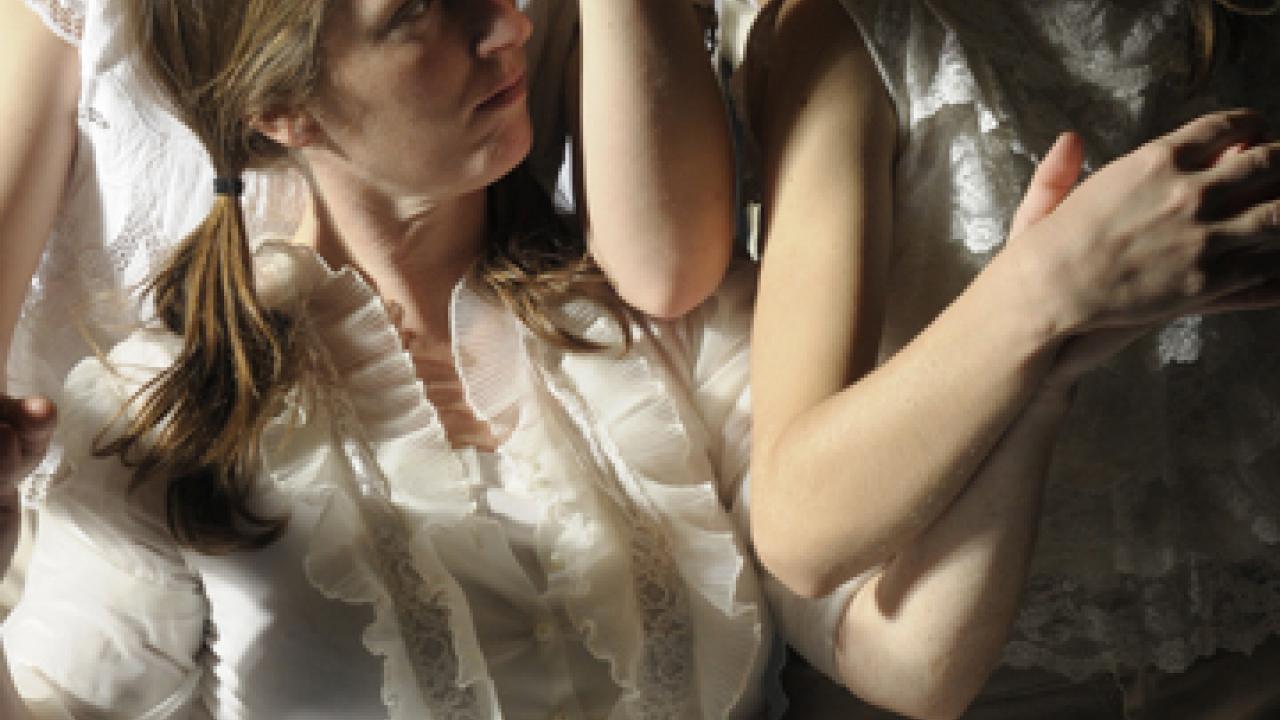UC Davis is in for a Spring Awakening like never seen before and a newfound Body of Knowledge.
Studio 301 Productions, a student-run troupe, is presenting the former, as the original play, not the musical of the same name. Spring Awakening, centering on German teens who are dealing with their sexuality and curiosities, is due for a preview presentation on Feb. 9, with opening night on Feb. 10 and subsequent performances through Feb. 20.
The Department of Theatre and Dance is presenting Body of Knowledge, in which members of the audience are invited to join the performers in an exploration of environmental, political and personal realities. Body of Knowledge is scheduled to run from Feb. 18 to 27.
See At a Glance for all the details: performance dates and times, the venues, ticket information, advisories, etc.
Spring Awakening
After presenting Neil Simon’s hilarious Rumors in fall quarter, Studio 301 decided to go with something dramatic for winter: Spring Awakening, by Frank Wedekind, published in 1891 and which became the basis for a Broadway musical more than a century later. The musical received 11 Tony nominations in 2007, and won eight, including the award for best musical.
Studio 301 says its Spring Awakening is “stripped down for intensity,” and almost certainly will have audience members re-evaluating all that they know about what it means to be an adult, and how well society really prepares us for entering our next stages in life.
“The characters are struggling with their own inner conflicts, not sure of how to express their frustrations, or if they are even allowed to,” a Studio 301 news release states.
Undergraduate Mitchell VanLandingham, the director, said: “I picked Spring Awakening because it remains relevant to the way our society raises (or fails to raise) its children, even 120 years after it was written.
“Furthermore, I wanted to present this important play as a sort of ‘workingman’s’ Spring Awakening — stripped down so that its ideas and its words are clear and understandable, not buried under theatrical tricks.”
The cast is minimal, as well, with nine actors playing 27 roles. “And they handle it wonderfully well,” VanLandingham said.
Undergraduate Ulysses Morazan will be among the actors who will transform from adult characters to child characters — sometimes right on stage. “This allows for a very interesting, complex storyline, and will keep the audience consistently transfixed with the wonderful world of Spring Awakening,” Morazan said.
Body of Knowledge
This interactive work juxtaposes scientific knowledge with the emotions that people feel in response to what they know, see and experience physically, according to a news release from the Department of Theatre and Dance.
“Actors, dancers, performance artists and musicians from North America and Europe will engage with interlocking issues of how we process knowledge of the environmental and political realities that we live in, how our environment affects how we live, think and feel, and how feeling and thought manifest in the body.”
The performance begins with a behavioral experiment designed to foster an atmosphere of creative curiosity and emotional exploration among audience and performers.
As the experiment deconstructs, the audience members can choose to sit back and watch from a distance, or wander with the performers on stage — where people (their bodies, emotions and minds) will interact with one another and with the environment.
“It is really a ‘happening,’ choreographer-director Karl Frost said, involving elements of dance, theatre, music, soundscape and video, as well as conversation.
“Are all the threads of our lives known through our bodies?” he asked. “As a ‘post-dramatic’ performance work, Body of Knowledge is an event that can be observed from many vantage points, both physically and philosophically.”
Never attempting to be an answer, Body of Knowledge is an opportunity to question privacy, intimacy, access to information, global awareness, insular fixation, reality, fantasy, choice, responsibility, lack of control and the place of art in a world in crisis.
Frost, a graduating Master of Fine Arts candidate, explained: “The performers help the audience in this exploration. Throughout rehearsals, they have been learning and engaging in ways to ‘facilitate exploration’ bodily, emotionally and intellectually.”
Read the complete news release.
Studio 301's Alison Stevenson and Janice Bisgaard, publicity manager for the Department of Theatre and Dance, conributed to this report.
Media Resources
Dave Jones, Dateline, 530-752-6556, dljones@ucdavis.edu
